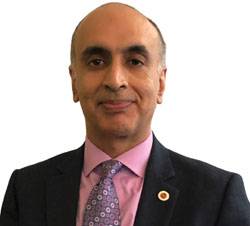Disputes
In India
- Save thousands of pounds.
- End your property, land, gold, money dispute within 1 day.
- Our Indian mediators can mediate for you within 14 days of contact.
- No more stress, expensive UK & India legal or court bills!
- Mediate in person or via zoom.
- 100% Confidential & No Obligation
Mediation Disputes In India
Many UK Sikh, Hindu, Punjabi, Indian, Sindhi, Gujarati, Jain, Buddhist, Christian, Pakistani & Muslim residents, have disputes in India as well as the UK. Although these disputes, generally can be over anything, with anyone. Typically, they will be between family members, or close Pind (village) members, friends in India, as well as the UK. The usual issues in dispute concern, land, property, gold, businesses or money. It is very common for a dispute to occur between family members, who are all resident in the UK.
Our Indian Mediators
Our Sikh, Hindu & Muslim mediators have mediated several disputes between them, which have encompassed disputes in India. Obviously, the UK Courts do not have jurisdiction over the Indian courts. However, if all parties to the said dispute agree and settle their dispute in the UK. Which concerns assets in India, the settlement agreement can be used to portray to the Indian courts. Evidencing that the dispute is now settled, allowing for the necessary transfer of property etc. This will satisfy the Indian courts, avoiding the need to get wrangled up in the laborious complicated, and expensive Indian legal system. They would be the obvious choice, as they understand. The culture, they know it and have been brought up in it.
Indian Generation Disputes
Over anything, then thrown into the mix, is the land etc in India or the like. Sometimes a dispute is inherited and passed through to the next generation. Whereby the children or grandchildren who had nothing to do with the original dispute, find it in their laps. Language, cultural, tradition, religious, logistical and jurisdiction barriers just further fuel the dispute. Making it that much more frustrating, complicated, stressful, time consuming and expensive.
Indian Dispute Specialisms
Speak the language – mother tongue of the disputants. Can grasp the issues quicker than mediators who have not grown up in the culture. With an in-depth knowledge and key understanding of the Indian community our Indian mediators can assist you to achieve quick, cost effective and pragmatic solutions. In relation to all types of disputes concerning the Indian community, equally our Indian mediators speak & understand Punjabi, Hindi & Urdu. Coming from Sikh, Hindu & Muslim backgrounds. We have dealt with Gurdwara, Mandair & Mosque disputes. Pre wedding, dowry, return of dowry, caste, mixed marriage & extended family, in law disputes.
INDIAN MEDIATOR VIDEO
CLICK ON THE MEDIATORS
NAME TO VIEW THEIR WHOLE CV
Director, International Commercial & Workplace Mediator & Trainer




Our Indian Dispute Mediation Services Have Helped
In March 1993 the defendant (D) purchased land in Bassi Hast Khan, India (“the land”) from her cousin, without her Late Husband’s knowledge. The Claimant (C) her younger brother states that the D paid for the land partly by securing a loan against her fixed deposit account in the Central Bank of India. The D says that she paid some cash and the balance through a friend. Transfer of the land document showed a price as 5,500 INR and not 112,000 INR which the D claims to have paid.
In October 1994 the D agreed to transfer the land to C and pay her the sum equivalent to the purchase price she paid. According to the D it was to be for the then value and the C was to pay the initial price paid by D and the balance would be paid immediately prior to the land being signed over to the C. Subsequently she accepted that the C did discharge loans in India but the amount is not known. The D then claimed that she never borrowed any money against the fixed deposit account and that she paid cash to her cousin and sent the rest of the money through her friend.
In April 1995 the C paid the sum of £2,500 to the Central Bank of India for release of her fixed deposit certificates which were held as security for the loan given by the Bank to the D to purchase the Land. He further gives her £1,500.00 cash in May 1995 and in March 1996 pays £3,487.50 into the D’s Halifax bank account making total payments of £7,487.50. The D denied borrowing anything from the Bank.
C stated that the D had failed / refused to transfer the land to him but had allowed him to continue to occupy and cultivate it and with the D’s knowledge had improved the quality and drainage system on the land. The D denies this and states that C occupied the land in breach of their agreement that he was to take over only upon payment of whatever the value of the land was in October 1995.
In February 2008 the D agreed to transfer the Land to C for a further 300,000 INR, payable by the 18th May 2009. She also acknowledged that she had received the rest of the monies. Subsequently she stated that she didn’t know what she signed, despite the contents of her defence contradicting such a statement. C offered payment of this sum in July 2008 but the D refused to accept this. D denies this and alleges that C didn’t pay despite demands made by her.
The D accepts that C offered to make a payment of 300,000 INR on his return from India (in 2008). The D says that the C offered to pay provided that the property was first transferred to him. D consistently refers to 300,000 INR as being the “balance” of the sale price.
In April 2010 the D transferred the land to her brother-in-law. She claimed that she was entitled to do this. The D does not accept that C had made the various payments as alleged by the C. Yet in her defense, she merely stated that she could not confirm that £7,487.50 was paid by the C and then she sought to set off against this £13,058.82, even though there was no counterclaim.
The Central Bank of India required the account number or copies of the FD certificates to enable them to locate the account. However, the bank verbally confirmed that the documents have been located but that they are unable to release these without specific written request from the D. A request from the D to the Bank has recently been sent, for the statements etc.
The D now seems to state that the property has actually been transferred to her brother-in-law and registered in his name. Therefore, the C was only likely to be awarded damages. The D has refused to accept the C’s valuation but has not provided her own. The D’s position was that nothing was due to the C as she transferred the property because of the D’s alleged failure to observe the terms and conditions of the agreement for transfer of the property to him.
The C’s solicitors sent to D a cheque for the balance payable which were returned undelivered. The D claims to have no knowledge of these. The C’s position is that he requires the D to honor her agreement to transfer the Land to him. He’s been ready able and willing to pay the D 300,000.00 INR. In the alternative, he wants an award for damages and losses based on the current value of the Land and the expenditure that he has incurred in reliance upon the D’s assurance that the Land was his.
The claimants (C) were husband and wife. Their next-door neighbour the defendant (D) was the sister of the first C. In breach of the D’s obligations arising from the Party Wall Act 1996 and without obtaining consent from, or consulting the C’s, the D commenced the construction of a rear-single storey extension.
In doing so she encroached on the land of the C’s. The amount of disturbance and inconvenience caused to the C’s was immense. The encroachment consisted of wrongfully building a wall from foundation level on land properly belonging to the C’s.
The works also involved the construction that adjoined the boundary fence and extended beyond the fence, encroaching on land belonging to the C. Fence and garden tiles, were also damaged. Trespass and a lot of mess being created were also issues in the mix.
£20,000 was being claimed. The mediation took place in person, took eight hours, and was settled at mediation. Read the testimonial here.
What Did The Indian Dispute Clients Say?

Paul Balen

Jo Holland


